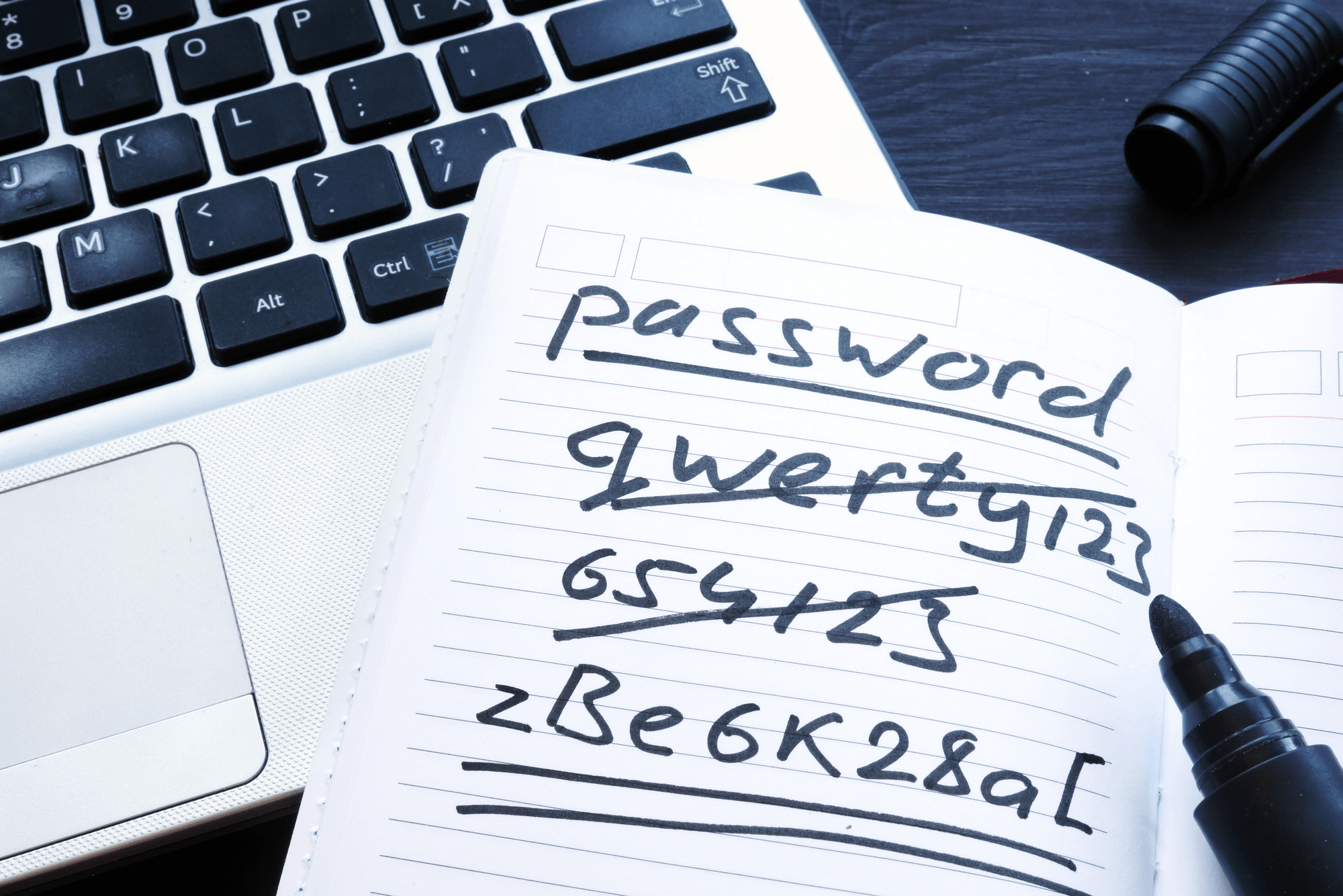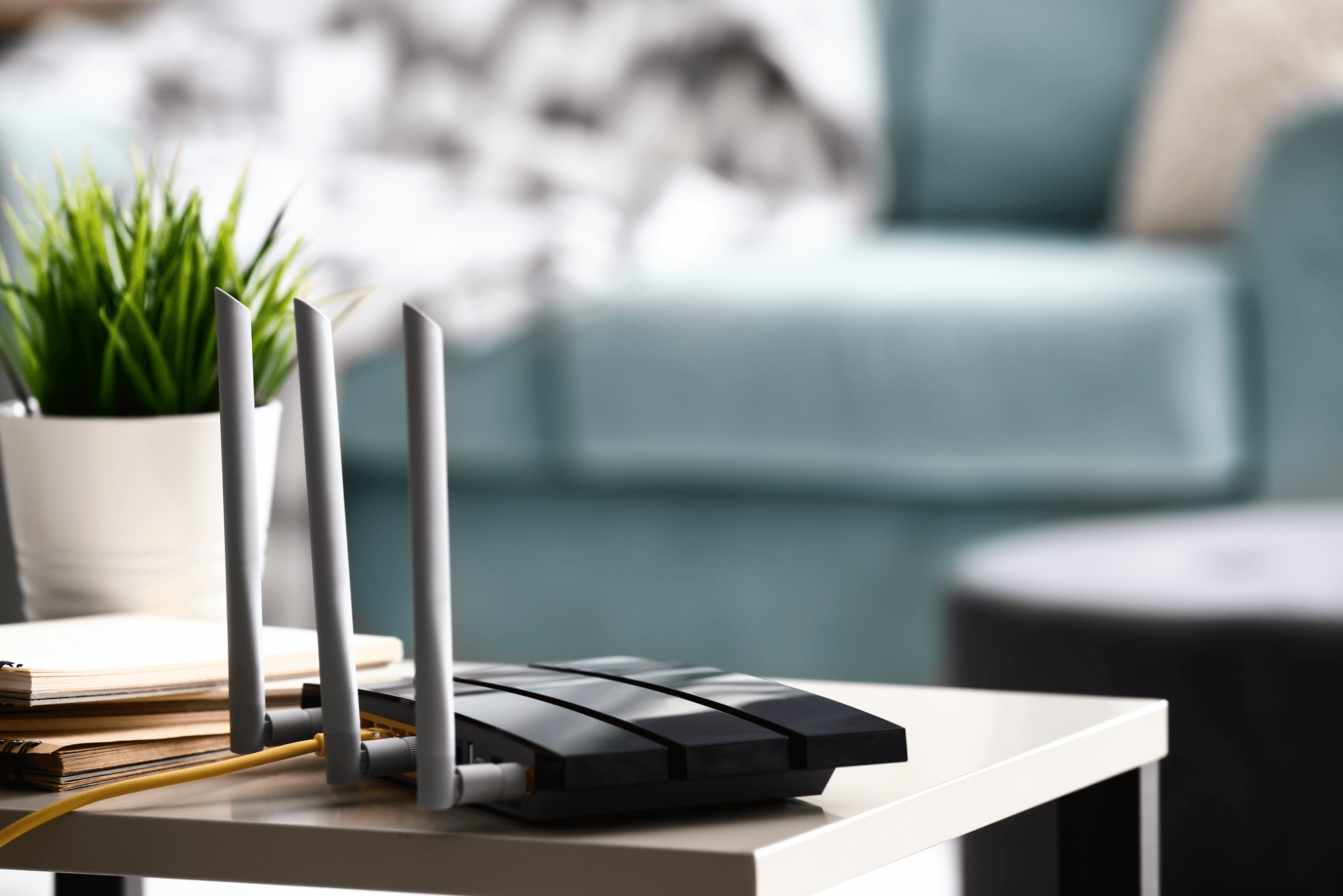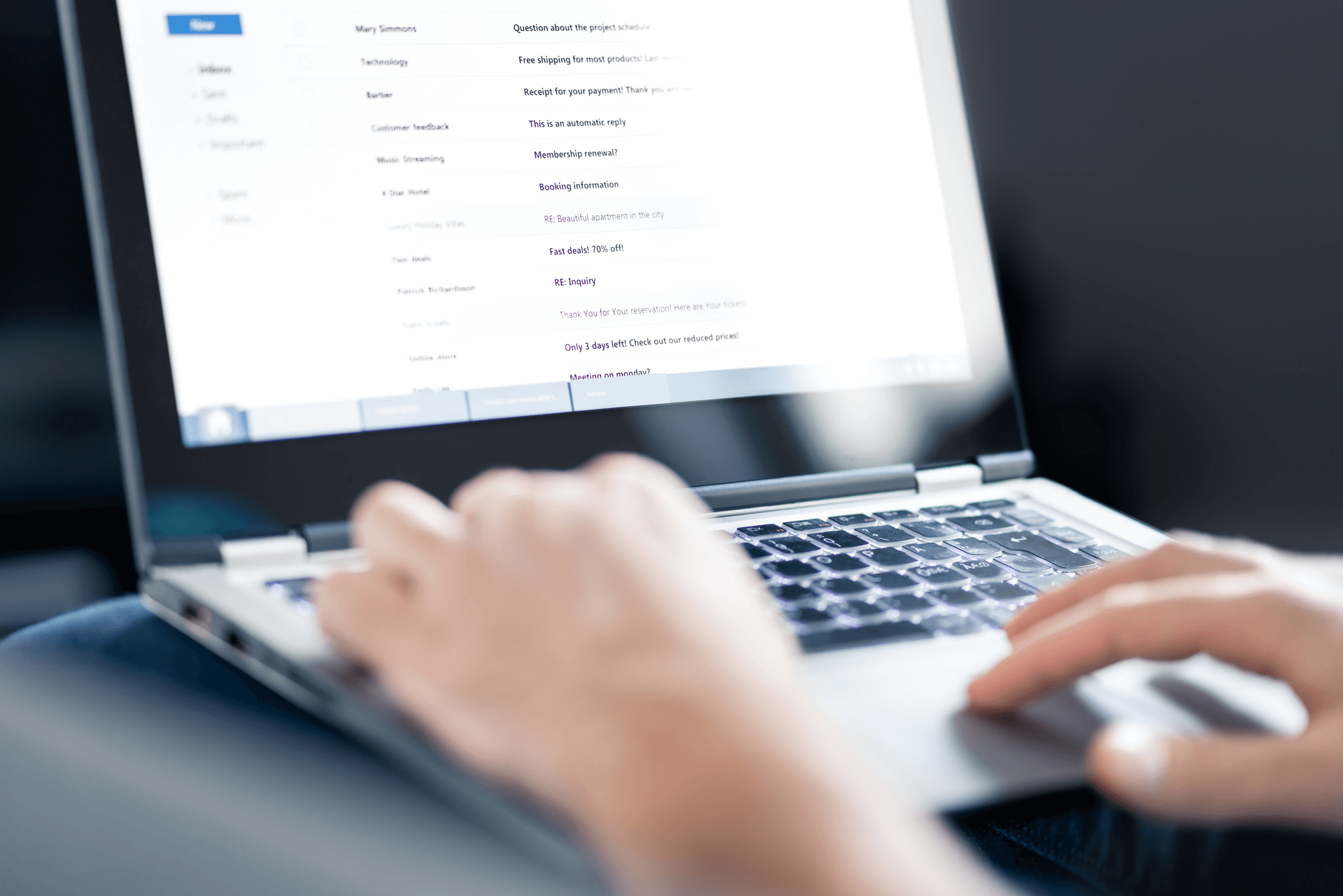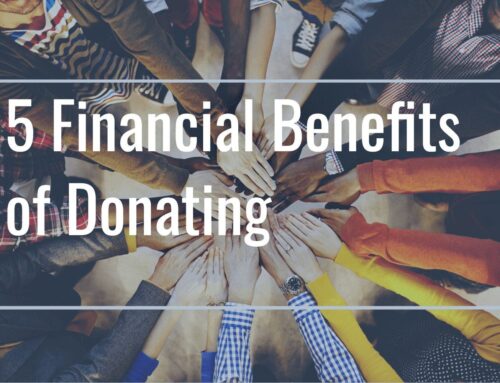Banking online safely is actually quite easy to do. At F&M Bank, we’ve built services to include secure online banking both through mobile and desktop devices. That said, we understand that you may still have some concerns about online banking safety, so we’ve created this guide to help you learn the best online banking practices.
1. Use Good Password Security Practices
There’s a difference between a mortgage and other common types of loans. A mortgage is a secured loan, meaning that in exchange for lower interest rates you offer up your home as collateral for the loan. Compare that to unsecured loans or unsecured debt, like credit cards where there are no forms of collateral and interest rates that compound in large percentages.

The first step to creating a secure online banking account is to choose a strong password that is easy to remember, but hard to guess. If your go-to password is still “Password,” it’s time to come up with a new one.
You could use a password generator, but we don’t recommend using an auto-fill password if you’re planning to bank online with multiple devices. Auto-fill passwords have their own security issues, but we will talk about that later.
Once you create your secure banking password, don’t let your phone or browser save it for later. The best way to remember it is to write it down and keep it somewhere safe. No one can hack pen and paper if they can’t see it!
You should also update your passwords frequently. At the very least, you should update your passwords once a year, but for banking passwords, you should update them at least every three months. If you get hacked, updating your passwords often will stop hackers from abusing your account for long periods of time.
2. Only Bank On a Secure Network

Public wifi access is convenient but you never know who else is connected to the network. Hackers can use wifi connections to steal your information from your device and then hack into your account later. Make sure if you have to use a public connection to avoid accessing your checking and savings account until you get home.
With that said, if you absolutely need to access your bank account while on public wifi, there are a few ways you can protect yourself. First, make sure you turn off public file-sharing settings. Second, make sure you turn off discovery settings so other devices won’t recognize yours.
You should also turn off Bluetooth settings like Airdrop if you have a Mac or iPhone.
Is it Safe to Access a Bank Account on Hotel WiFi?
Just because you don’t know who else is connected to the network, it is very risky to access a bank account while on hotel wifi. Generally speaking, you should avoid it.
Does a VPN Protect Online Banking?
If you’ve never heard of a VPN, it stands for a Virtual Private Network that protects your information while connecting to a secure server. Some VPNs are available for free, but free versions tend to sell advertising information, so paying for a VPN will do better at protecting your information.
If you’ve never used a VPN before, they’re pretty easy to use. Just download the app or program onto your phone, tablet, or computer and turn on the connection. VPNs will then automatically connect you to your secure server.
3. Add Extra Security With 2 Factor Authentication
Two Factor Authentication or 2FA is now a popular security feature for businesses and banks. Through our online banking mobile app, you can add a phone number or email address to your account and receive a message with a randomly generated security code to input as you log in.
Other than normal text messaging rates through your phone provider, 2FA is a completely free add-on to your online banking services.
4. Sign Up for Online Banking Alerts
As part of our online banking offerings, we give you the option to receive automatic banking alerts. Through our online banking app, you can receive alerts directly on your phone, through text messages, or through email. Banking alerts will let you know if there are any sudden changes to your account or any suspicious charges.
Alerts can also let you know if there are any suspicious login attempts, new credit or debit card transactions, or money transfers. By keeping your guard up on your account, you can then notify F&M Bank about suspicious transactions and activity so we can secure your account.
5. Learn to Recognize Phishing Scams and Avoid Them

One of the most common ways identity thieves use is phishing scams through email. Sometimes phishing scams can be from a suspicious website, popup or webpage ad, so be careful with those too.
What are Phishing Scams?
Essentially, when thieves are phishing for your information they try to trick you into clicking a link and stealing your personal information. For example, you may receive an email that appears to be from your bank with a link saying you need to update your login information. However, these links actually go to a dummy site where the hacker can steal your information. If you enter any of your information into that site, it will be compromised.
When you receive a suspicious email or link, make sure you carefully review the email address to ensure it’s coming from a trusted source. Another tip is to roll over links so you can see where the link will take you if clicked.
Another type of phishing scam you should be aware of is automated phone calls claiming to be from the IRS. These calls usually involve asking for money or threaten lawsuits against you. If you’re worried about whether or not these calls are legitimate, try calling the number back or Googling it.
6. Be Careful with Automated Financial Apps
A new trend for people interested in managing their money is to download a money management chatbot app. These apps use your transaction history to give you suggestions for how to better manage and budget your money. Just be aware that these apps usually request direct access to read your bank transactions.
Depending on the app, it may conflict with your account’s terms of service. So if you do plan on using a chatbot app, make sure to carefully read the terms and conditions. Also, you should carefully investigate the reviews and version histories of the app you’re thinking of downloading to make sure it’s secure.
However, your best bet is to exclusively use the F&M Bank online banking app to maintain your security.
7. Don’t Use Email Links to Visit Your Bank Account
Like we said as we talked about phishing scams, you should be careful when opening links asking for your information. Remember these are the most common phishing scams that identity thieves use.
8. Don’t Save Your Login Information
Many browsers and operating systems offer password-saving settings or keychains. These let you autofill your login information to your bank account and make accessing your account much more convenient. However, hackers can attack these keychains and steal your data.



